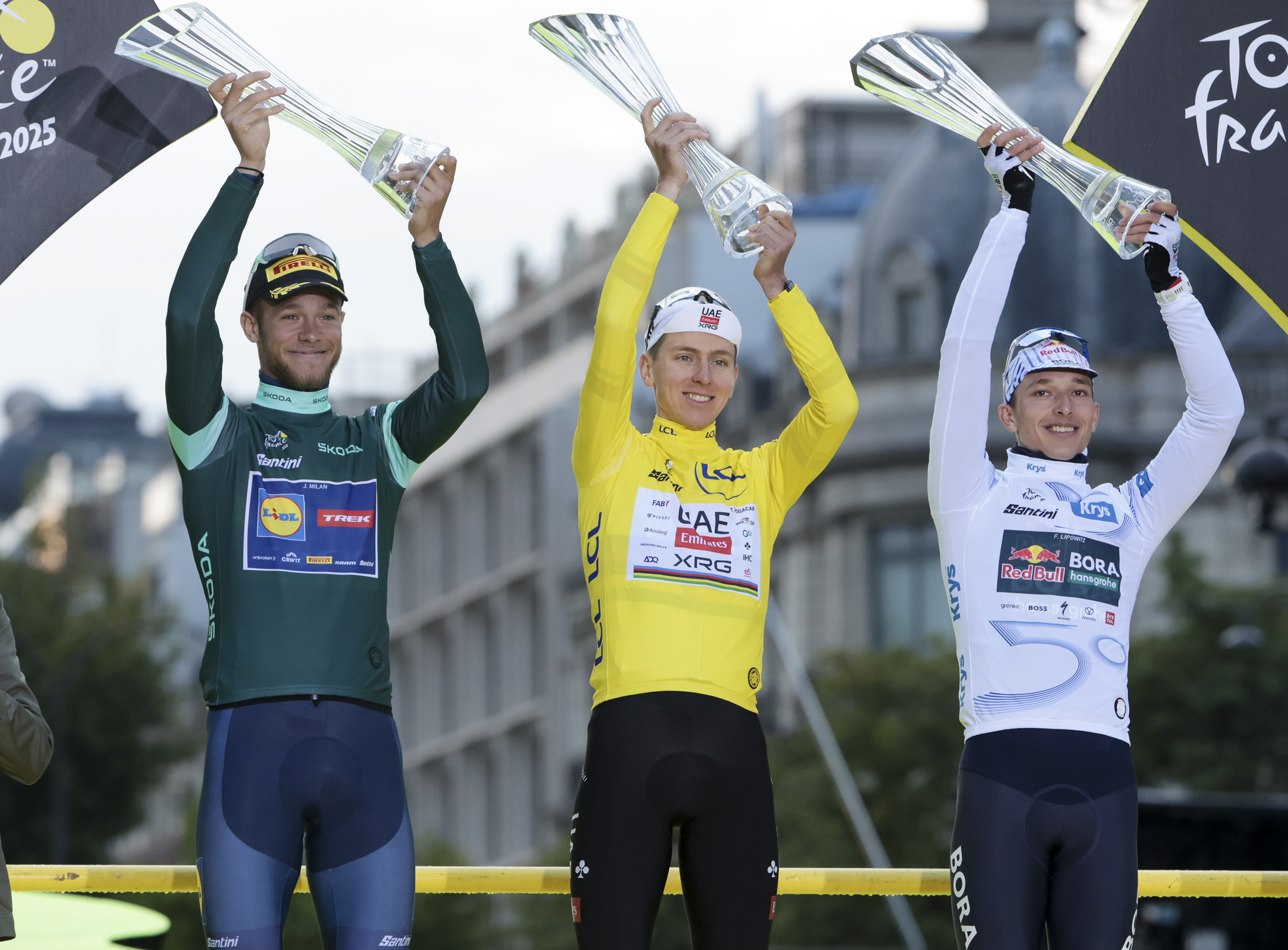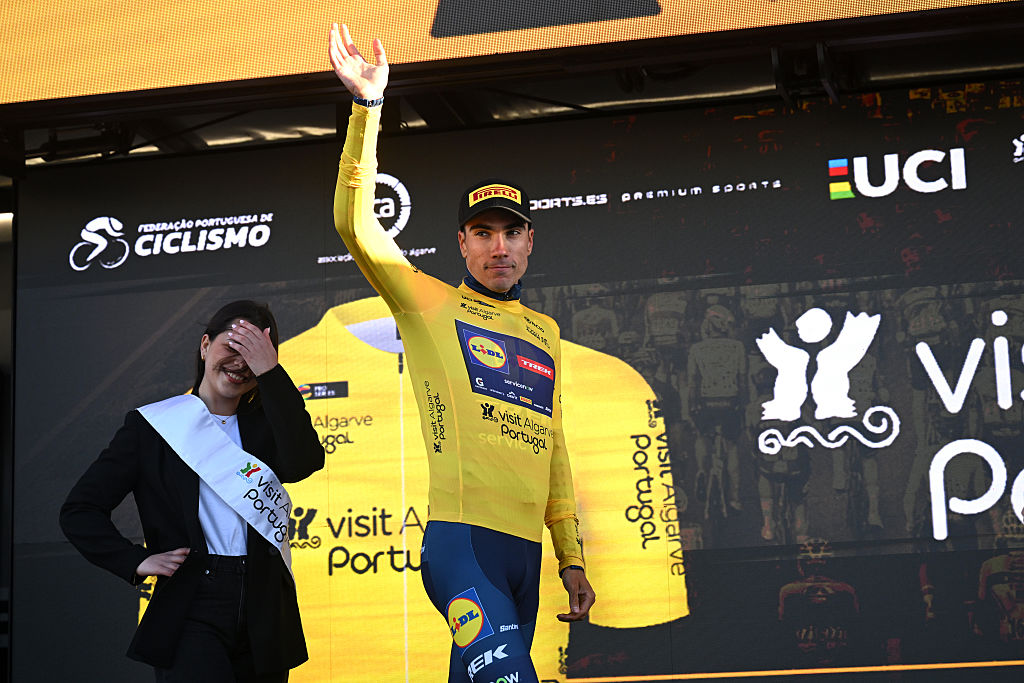'Paradoxically, the teams didn't accept it' – Teams budget caps not coming to cycling in near future, reveals UCI President
David Lappartient talks cycling's financial state in extensive interview with Ouest-France, also explaining difficulty of future ticketed entry at races

The latest race content, interviews, features, reviews and expert buying guides, direct to your inbox!
You are now subscribed
Your newsletter sign-up was successful
Even amid various crises facing smaller WorldTour teams and an apparent widening gap between the super teams of the day and those struggling at the bottom, a budget cap proposed by the UCI was still refused by the teams, the governing body's President, David Lappartient, revealed on Wednesday.
Lappartient was speaking to Ouest-France within the context of Arkea-B&B Hotels needing to fold after not finding the sponsorship to continue into 2026, which coincides with teams like Lotto and Intermarche-Wanty requiring a merger to stay in the sport.
A budget cap has been floated as an idea long before these past few seasons, and while Lappartient is convinced it's what the sport needs, the teams still deny it, and it's not just the super teams in control at the top, according to the UCI President.
"It's clear. The big teams have very large budgets, and as a result, where before a relatively small sum could be enough to achieve a decent result, today you're just a bystander," Lappartient told Ouest-France.
"We considered implementing a "Budget Cap" for all the teams, and paradoxically, the teams didn't accept it. I was surprised that it was mostly the smaller teams that refused. I think they were wrong because it seems necessary to level the playing field."
This had been in the works since March 2024, when the UCI announced that "the principle of implementing a budget cap for teams was approved", with the aims of preserving "sporting fairness by avoiding excessive disparities between teams in terms of budget."
The 2026 season was when they had planned to implement, but this pushback from the teams revealed by Lappartient has stopped it in its tracks. Lappartient explained his confusion at the teams refusing the cap, given how it would redistribute wrongdoings to help the smaller budget squads and how there will always be richer and poorer teams in professional cycling.
The latest race content, interviews, features, reviews and expert buying guides, direct to your inbox!
"So why vote against it when a budget cap is proposed?" he said, when asked if cycling's financial model was in crisis. "They say yes, but first the cycling model needs to change."
With a budget cap, if you exceeded the limit, you had to pay a tax that went to other teams. There was a mitigating mechanism in place. When you look back at cycling history, consider La Vie Claire. They finished 1st, 2nd, 4th, 7th, and 12th in the 1986 Tour de France. And the team's budget at the time, relative to the others, was probably even higher than UAE Team Emirates'.
"I'm not saying it was right. But there have always been teams with more resources than others. The goal is to regulate things a little. And I remain convinced that a budget cap is one of the elements to achieve that."
Lappartient was cautious to call the model of his sport 'outdated' but instead focused on how much better off the riders are as a whole, with global sponsorship still entering the sport in recent years – such as Red Bull, Lidl and CMA-CGM.
"Can't we say that cycling was undervalued compared to its true worth, and that today, it's a sport that has taken on a global dimension? And, as a result, we have sponsors of a more global scale, with more international teams," said Lappartient.
"Perhaps this is the price of success, with cycling enjoying very high viewership. The real winners are the riders, who are earning a much better living."
With Lappartient making his view on budget caps clear once again, it's fair to say that while parked as a potential change for the future, it likely won't be the final time the UCI proposes this to the teams, especially as overall dominance for UAE Team Emirates-XRG continues to grow.
In the extensive interview, Lappartient also commented on another topic, which continues to crop up into the 2025 off-season: whether or not fans should be ticketed for entry to races on the road, such as up key mountain passes. That too doesn't look like it will be implemented anytime soon, especially given the uproar it would cause if put in place for the Tour de France.
"Ticketing is a bit complicated for the Tour de France because, historically, it's going to spark a national debate," he said.
"A legal framework needs to be established; charging for public space in France is complicated. And ultimately, I think people will want the money to go to the riders. It's not impossible, but it will still be a revolution compared to what we're used to."

James Moultrie is a gold-standard NCTJ journalist who joined Cyclingnews as a News Writer in 2023 after originally contributing as a freelancer for eight months, during which time he also wrote for Eurosport, Rouleur and Cycling Weekly. Prior to joining the team he reported on races such as Paris-Roubaix and the Giro d’Italia Donne for Eurosport and has interviewed some of the sport’s top riders in Chloé Dygert, Lizzie Deignan and Wout van Aert. Outside of cycling, he spends the majority of his time watching other sports – rugby, football, cricket, and American Football to name a few.
You must confirm your public display name before commenting
Please logout and then login again, you will then be prompted to enter your display name.
